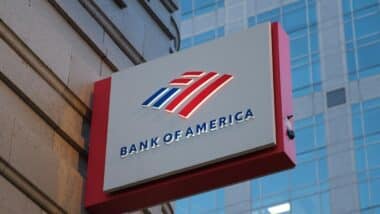 Questionable overdraft charges by Wisconsin’s third largest credit union are the cause of action in an ongoing class action lawsuit.
Questionable overdraft charges by Wisconsin’s third largest credit union are the cause of action in an ongoing class action lawsuit.
The complaint, originally filed in March 2018 by lead plaintiff Matthew D., names Summit Credit Union as the defendant, and alleges that overdraft charges were improperly assessed on certain customers. Summit is only one of several banking institutions across the nation that have been accused of levying abusive and exploitative overdraft fees against customers’ accounts and are either being sued or investigated over their practices.
Specific Allegations Against Summit CU
As reported in the Milwaukee Journal-Sentinel, Summit Credit Union (SCU) failed to inform its depositors that “pending” debit card transactions were factored in when determining checking account balances. Because of this, the lead plaintiff says there were numerous instances in which he incurred overdraft charges even though his account had sufficient funds to cover the transactions in question.
According to Matthew, Summit’s own policies state that “An overdraft occurs when you don’t not have enough money in your checking account to cover a transaction, but we pay it anyway.” However, Matthew claims Summit did not specify that their account balances would be determined based on “funds availability,” meaning the actual balance minus any pending transactions – that may or may not be posted.
Are Summit’s Overdraft Charges Illegal?
The complaint states, “[T]he practice of using this artificial balance method rather than the money actually in the account to determine whether a transaction results in an overdraft and thus is subject to an overdraft fee directly contrary to SCU’s Opt-In Contract.” It further states that “such practices have resulted in SCU improperly charging unlawful overdraft fees.”
If the allegations against SCU are proven, Matthew argues it could be found to have violated Regulation E of the Electronic Funds Transfer Act.
Like many other institutions currently being sued or under investigations, SCU “created this ‘artificial balance’ to increase overdraft fees it charged to its customers,” the lawsuit says. In 2010, Georgetown University law professor Adam Levitin published a research article in which he noted that up to 7 percent of credit union revenues came from overdraft fees.
Furthermore, the Pew Research Center reports that overdraft charges fall disproportionately upon young people, low-paid workers and members of minority groups.
“Reordering” Transactions
Another common and egregious practice that has been highlighted in recent lawsuits involving overdraft charges is that of reordering account transactions. For example, suppose Mary Jane has $150 in her account. She spends $10 on lunch, $50 on an evening out with friends, and $30 on cab fare.
Later, she paid her utility bill online, which was $75. That last transaction places her $15 in the red, for which her credit union assesses a $35 overdraft fee (assuming she has “opted in” for overdraft protection) and bringing her negative balance to $50.
What has been happening however, is that banks and credit unions have been processing transactions out of order, starting with the highest amounts first. Using the above example, the three highest transactions would clear, but not the last two. Mary Jane still winds up $15 overdrawn, but incurs two overdraft charges – and now her balance is minus $85.
Holding Them Accountable
The Consumer Financial Protection Bureau has investigated the way banks and credit unions have been assessing overdraft fees, which may result in updates to present regulations. However, this does not solve the problems currently faced by consumers who have already been charged unreasonable and improper overdraft fees.
Matthew D.’s Summit Credit Union Class Action Lawsuit is Case No. 3:18-cv-00167, U.S. District Court, Western District of Wisconsin.
If you were charged unfair overdraft fees by your bank or credit union, you could be eligible to participate in a FREE class action lawsuit investigation. If you qualify, an attorney will contact you to discuss the details of your potential case at no charge to you.
Fill out the form on this page now for a free, immediate, and confidential case evaluation.
ATTORNEY ADVERTISING
Top Class Actions is a Proud Member of the American Bar Association
LEGAL INFORMATION IS NOT LEGAL ADVICE
Top Class Actions Legal Statement
©2008 – 2025 Top Class Actions® LLC
Various Trademarks held by their respective owners
This website is not intended for viewing or usage by European Union citizens.
Get Help – It’s Free
Join a Free Bank Overdraft Fee Class Action Lawsuit Investigation
If your bank and credit union has engaged in deceptive overdraft fee practices, you may have a legal claim. Fill out the form on this page now to find out if you qualify!
An attorney will contact you if you qualify to discuss the details of your potential case.
PLEASE NOTE: If you want to participate in this investigation, it is imperative that you reply to the law firm if they call or email you. Failing to do so may result in you not getting signed up as a client or getting you dropped as a client.
In order to properly investigate overdraft fee claims, you may be required to disclose bank statements to overdraft fee attorneys. Please note that any such information will be kept private and confidential.












